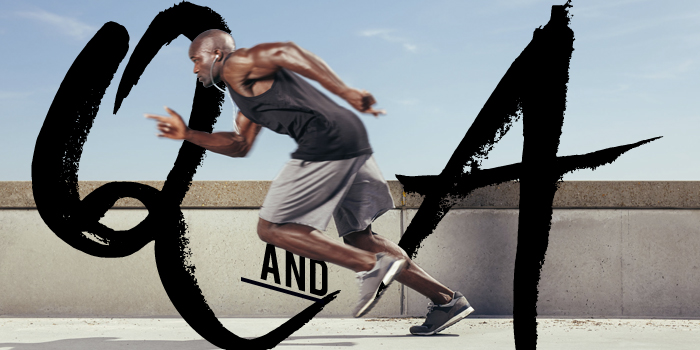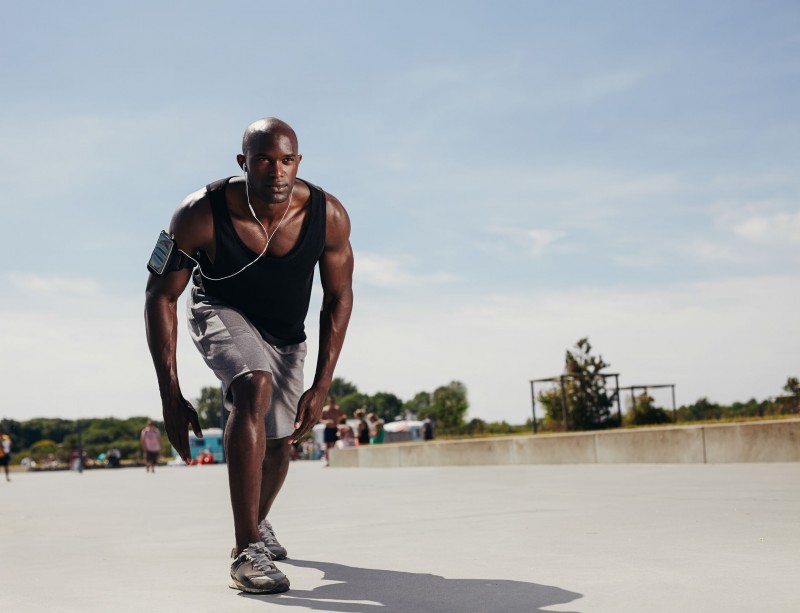
It is rare in any industry to have the opportunity to interact directly with experts in the field — and it's even rarer that these experts are willing to openly and freely share their knowledge. The elitefts Q&A provides exactly this opportunity, connecting you, our readers, with the experts of elitefts. It enables individuals new to training—or even those with years of experience—to directly speak with the best of the best in their field of interest.
Not sure how to start training for your first powerlifting meet? We have team members to guide you through it. Uncertain about the conditioning program you developed for your high school sports team? We have coaches to help sort it out. Struggling to make progress with your diet and need a few tips to re-ignite progress? We have bodybuilding experts to help with that, too. The team members who answer questions on the Q&A come from all backgrounds, including powerlifting, bodybuilding, collegiate strength and conditioning, physical therapy, and more. They have spent their lives devoted to their craft and are here to share the lessons.
RELATED: Q&A with James Smith: Upper Body Training for Volleyball Players
Each month, hundreds of questions from elitefts readers are posted on the Q&A, with team members, friends of the team, and other readers responding to share experience and give advice. The elitefts team members who spend time on the Q&A not only have the necessary expertise to answer your questions but more importantly, they have the willingness. They truly embody living, learning, and passing on.
In this Q&A highlight, a reader by the name of Justin takes on a unique challenge of preparing for Army Basic Training at 41 years old, with 11 years of Navy service already under his belt. As luck would have it for Justin, elitefts team member James Smith not only has experience designing programs for similar physical demands, but has in fact even written a manual on high-demands special operations physical preparation for the military. No matter the type of expert you're searching for, it's likely you'll find them here.
Question from Justin:
This may seem crazy, but at 41 years old, with 11 years prior service in the Navy, and after being out for 11 years already, I'm re-joining the military. But I'll have to go through Army Basic Training. So besides a million or two push-ups, sit-ups and pull-ups, I need to incorporate running back into my workouts. Before I made this decision, my cardio consisted of not much at all, to maybe running a hill once a week.
Question is, should I run after my workouts?
I do my main lifts (squat, deadlift, and overhead press) on alternating days six times a week. Should l cut down the frequency and have a day dedicated to running? I don't want to lose a lot of the strength, but I don't want to go to basic and be seen as an old, lumbering, wheezing senior citizen either.
Answer from James Smith:
My suggestion for you is to prioritize that which correlates most accurately with the demands of basic training, as parochial as they may be. In this way, consider the structural demands of basic training as a mathematics equation from which you may derive preparatory solutions that serve to maximize your calisthenics and running. As you know from your Navy experience, not only will this bode well for you in the eyes of the cadre and statistical performance (that goes on your record), but also mitigate the possibility of you sustaining any sort of soft tissue injury that you might be susceptible to if you were to do as little as necessary in preparation.
I encourage that you perform all basic training preparation first in your workouts, thereby prioritizing it, and only afterward continue with whatever weight training you prefer. Thus, while your weights may take a temporary setback, your running and calisthenics will have a chance to reach all-time bests.
Remember, there is some sort of running that occurs every day in basic training. Thus, if you are to intelligently prepare, you must work your way up to running every day in preparation, along with any other forms of exercise (calisthenics) that you are likely to have to perform on a daily basis.
I suggest that you have a look at Jack Daniels Ph.D. Running Formula in order to gain more knowledge on how to intelligently approach your middle and long distance running preparation. And, depending on how ambitious you are, here's a link to a manual I wrote on preparing for Military Special Operations Selection.
Image credit: ammentorp © 123RF.com
More about James:
Professional duties have included stations in 3 countries. Coaching or consulting roles have spanned the Olympic, International, Professional, University, High/Secondary School and private sector levels. Work positions have included: track and field coach/consultant, physical preparation coach/consultant, Program Director, and Senior National Physical Preparation Coach with Performance Director responsibility for the Portuguese Rugby Federation. Presentations on global sport concepts have been given in 5 different countries. Consulting duties have spanned work with coaches/athletes from the NFL, CFL, Collegiate American Football, United Kingdom Athletics, Jamaican Track and Field, US Collegiate Track and Field, US National Luge, Super 15 Rugby, Premiership Rugby, Rabo Direct Pro 12 Rugby, English Premier League Football, Croatian Water Polo, USA Volleyball, Mixed Martial Arts, and a variety of other Olympic sports disciplines. Military special operations, Paramilitary, and Law Enforcement clients have included: operators from USAF Para Rescue, US Navy SEAL Teams, US Navy Divers, Swedish Särskilda Skyddsgruppen, US Army Special Forces, Federal Air Marshals, Para Military Contractors, and Corrections Officers. Locate more information at www.globablsportconcepts.net.
Business contact:











Best of look to you. Stay sane!